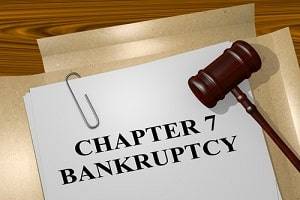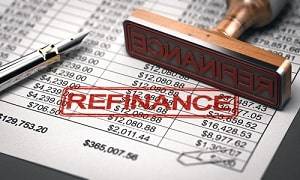Contact Our Firm
The use of the Internet or this form for communication with the firm or any individual member of the firm does not establish an attorney-client relationship. Confidential or time-sensitive information should not be sent through this form.
I have read and understand the Disclaimer and Privacy Policy.

Recent Blog Posts
Common Restrictive Covenants Included in Florida Business Contracts
 If you are in the business field, you know how important it is to read your documents before you sign them, but many people simply skim the text before signing. In some cases, this may be OK, but when there is a possibility that you could get into trouble because of that document, the stakes can be high. In certain contracts, there are often clauses imposing restrictions on what actions an employee or business can take. These are called restrictive covenants and are a common part of many contracts, especially business and employment contracts. Understanding what these restrictive covenants entail is essential before you sign the document.
If you are in the business field, you know how important it is to read your documents before you sign them, but many people simply skim the text before signing. In some cases, this may be OK, but when there is a possibility that you could get into trouble because of that document, the stakes can be high. In certain contracts, there are often clauses imposing restrictions on what actions an employee or business can take. These are called restrictive covenants and are a common part of many contracts, especially business and employment contracts. Understanding what these restrictive covenants entail is essential before you sign the document.
Non-Compete Agreements
Most of the time, non-compete agreements are found in employment contracts and sometimes in business sales agreements. If an employee’s contract contains a non-compete section, the employee is typically barred from working in a similar business or line of work after their employment with the business has ended. In these agreements, a period of time during which the agreement is in effect must be specified, as well as a specified radius from the location of the business in which the agreement is in effect.
What Is the Foreclosure Process in Florida?
 When you buy your first home, you likely see the rest of your life right in front of you—the family meals you will make in your kitchen, the time you will spend decorating each room, and the memories you will make with your family each year. While you are imagining all of these happy times, the thought of financial difficulties and the possibility of foreclosure is probably the last thing on your mind. Buying and owning a home is exciting, but making mortgage payments during a financial recession can be terrifying. If you are struggling to make ends meet, it is important to understand what the foreclosure process entails so that you can avoid losing your home.
When you buy your first home, you likely see the rest of your life right in front of you—the family meals you will make in your kitchen, the time you will spend decorating each room, and the memories you will make with your family each year. While you are imagining all of these happy times, the thought of financial difficulties and the possibility of foreclosure is probably the last thing on your mind. Buying and owning a home is exciting, but making mortgage payments during a financial recession can be terrifying. If you are struggling to make ends meet, it is important to understand what the foreclosure process entails so that you can avoid losing your home.
A Florida Foreclosure
The foreclosure process is hardly immediate and you do have options to avoid foreclosure if you take the appropriate steps. If, however, you wait to take action, you can find yourself losing everything. In order to avoid waiting too long and diminishing your home-saving options, it is important to know the timeline and steps of the foreclosure process.
Questions to Ask Yourself Before Buying Your First Florida Home
 It is no secret that the COVID-19 pandemic left many Americans struggling to make ends meet. Many employees saw pay cuts, a number of workers were furloughed, and some lost their jobs altogether. With economic conditions at an all-time low, many families were battening down the hatches and just trying to get by. Now that the COVID-19 vaccine is circulating the country, with more and more people getting the shot each day, things are beginning to open back up, including Americans’ desire to move on to the next chapter of their lives. For some, this involves buying their first home. Being a first-time homebuyer is an exciting experience -- you begin to imagine your life unfolding in a place that you can call your own. While every home buyer may be looking for something a bit different, it is important that the following questions are considered before finalizing your purchase.
It is no secret that the COVID-19 pandemic left many Americans struggling to make ends meet. Many employees saw pay cuts, a number of workers were furloughed, and some lost their jobs altogether. With economic conditions at an all-time low, many families were battening down the hatches and just trying to get by. Now that the COVID-19 vaccine is circulating the country, with more and more people getting the shot each day, things are beginning to open back up, including Americans’ desire to move on to the next chapter of their lives. For some, this involves buying their first home. Being a first-time homebuyer is an exciting experience -- you begin to imagine your life unfolding in a place that you can call your own. While every home buyer may be looking for something a bit different, it is important that the following questions are considered before finalizing your purchase.
- How Much Can I Afford? Buying a home is a long-term investment so it is important to budget appropriately for your monthly mortgage payments; after all, they will last for years to come. Begin by looking at your personal finances, such as your income, monthly expenses, and debt payments. Add up your typical monthly expenditures, including food, transportation, utilities, phone bill, insurance premiums, and more. Calculating these costs will help you determine how much you have remaining to dedicate towards your mortgage.
What is a Business Succession Plan and Why Do I Need One?
 As a young business professional or recent business owner, your retirement likely seems years or decades away. Work can quickly become your main priority, especially if you are the owner of a business. Even if you are young and retirement is far in the future, it is important to have legal documents put in place that outlines what will happen with your business if you are no longer in charge. Do you want the business to be sold? Would you like your business passed down to another family member? With the help of a reputable business attorney, you can ensure that your vision for your company is met.
As a young business professional or recent business owner, your retirement likely seems years or decades away. Work can quickly become your main priority, especially if you are the owner of a business. Even if you are young and retirement is far in the future, it is important to have legal documents put in place that outlines what will happen with your business if you are no longer in charge. Do you want the business to be sold? Would you like your business passed down to another family member? With the help of a reputable business attorney, you can ensure that your vision for your company is met.
What is a Business Succession Plan?
In order to outline the future of your business, you should build a business succession plan in the early years of your business. A business succession plan is a legal document that guides your company through a change of ownership in the instance that you are unable to continue running things. This may be a result of retirement, death, or disability. Similar to a will, a business succession plan allows you to plan for the unexpected with the comfort of knowing that your business is in good hands. If you are passing your business down to one of your children or other close family members, the succession plan will name this individual as the new owner and list any necessary steps for this transfer of ownership. If a purchase is involved, the plan will include the sale price and purchase terms.
Issues to Consider When Filing for Bankruptcy
 If you are struggling financially, you may be wondering whether or not filing for bankruptcy is the right solution for your situation. While you are considering that option, there are steps you can take to help protect your assets from creditors. The following is a brief overview of those steps. For more specific information about your situation, consider speaking with a Fort Lauderdale bankruptcy attorney from Elliot Legal Group.
If you are struggling financially, you may be wondering whether or not filing for bankruptcy is the right solution for your situation. While you are considering that option, there are steps you can take to help protect your assets from creditors. The following is a brief overview of those steps. For more specific information about your situation, consider speaking with a Fort Lauderdale bankruptcy attorney from Elliot Legal Group.
Bank Accounts and Credit Cards
Many of our clients find that debt can be a vicious cycle. Borrowing money creates debt and then situations arise that force people to have to borrow more money to try to get ahead of the debt. The more you borrow (or charge on credit cards), the worse your financial situation gets, and creditors are now calling on a weekly basis looking for their money.
If you are at the point where you are seriously thinking about bankruptcy, you want to stop borrowing money, whether through lines of credit or credit cards. Do not purchase any large ticket items – such as a car or jewelry – or otherwise try to run up credit cards any more than they are right now.
How to Keep Your Home If You File Chapter 7 Bankruptcy in Florida

While it is true that bankruptcy may not be for everyone, the two types of consumer bankruptcy do allow for plenty of options within them. People who cannot afford a payment plan for a Chapter 13 bankruptcy are usually afraid to file a Chapter 7 bankruptcy because they worry that foreclosure might result if they own a house. However, depending on your circumstances, you might be able to get the clean slate of a Chapter 7 bankruptcy without losing your home to foreclosure. In Florida, it is possible to keep your house even if you file for a Chapter 7 discharge of all consumer debts.
Chapter 7 Versus Chapter 13: Keeping Your House
Most bankruptcy attorneys will advise you to file for Chapter 13 bankruptcy if you meet the following criteria:
Looking to Grow Your Florida Business? Consider Collaborating

As a business owner, you are undoubtedly protective of the company that you have built and maintain a certain level of privacy when it comes to your business. Every business is bound to have secrets that only the owner, management, and your business lawyer are privy to. While the inner workings of your company should remain confidential to a certain extent, it is important to avoid being completely insular. Building your network and collaborating with other business owners is a simple way to grow your business and make it more successful. In fact, there are a number of benefits that business collaboration has to offer.
New Inspiration
The best way to discover new ideas is by seeing how other successful businesses are doing things. Ideas can quickly come to a standstill in a workplace that never looks outside of its current way of doing business. While maintaining a routine is important in any workplace, never straying from this routine can make you miss out on new opportunities, techniques, or tools that can help you be more efficient both in time and money. Seeing how other businesses use certain techniques can also act as a “test drive” before you take on this new strategy.
4 Ways to Settle Business Partner Disputes in Florida

Years ago when you and your partner started your business, you were likely both on the same page. Perhaps you are family, best friends, or simply co-workers who came up with a brilliant business idea together. Whatever your outside relationship may be, when it comes to running a business, you must maintain a sense of professionalism, especially when arguments arise. Rarely do business partners agree on every decision being made, but some disagreements can become more contentious than others. There are four ways in which you and your business partner can settle a dispute, some of which can be done on your own while others require outside help.
1. Referring to Your Management Agreement
Those going into business together should always plan for future disagreements that are inevitable when it comes to business partnerships. It is impossible for you and your partner to completely agree on every detail of your work, which is why business partners are advised to create a management agreement before going into business together. If you have both been in business together for years, you likely created a management agreement and may not remember the exact details. Before taking steps forward, refer to your management agreement to see how you and your partner should be handling things. Perhaps you included a clause that required you to go to mediation or maybe one partner has veto power over the other. If you have a management agreement, this should be your first place to turn. If you do not have one, you can choose any of the following options.
Am I Eligible to Refinance My Florida Home?

If you have recently had a change in your financial circumstances--perhaps you lost your job, received a pay cut, or have taken on additional costs--the mortgage that has been affordable over the past decade may no longer be feasible. You may be concerned that because your mortgage exceeds your income, you will soon be on the path to losing your home. Without taking any additional action, foreclosure could soon be on the horizon. However, there are a number of actions that you can take before getting to this point, including refinancing your home.
What Is Refinancing?
Refinancing your home means replacing your current home loan with a new one. There are a number of benefits that refinancing has to offer, such as reducing your interest rate, cutting monthly payments, or tapping into your home’s equity when needed. Refinancing can also allow you to pay off your loan quicker or switch from an adjustable-rate to a fixed-rate loan. Refinancing your home may seem like the perfect solution to your financial difficulties; however, there are certain requirements that must be met in order to qualify.
What Should I Consider When Selecting My Business Structure?

Starting a business is an exciting endeavor. You have likely spent years considering a business idea in your head and are finally in the process of getting things off the ground. Having a good business idea is only the first step in creating a successful company. While this may be the foundation of your work, there are other things that are required during these initial stages. One of the most important aspects of building a business is choosing the right legal structure, also known as a business entity. This single decision impacts how your business will be run moving forward. But how do you know the difference between your options and determine which is the right one for you?
Choosing a Business Entity
There are four types of business entities that one can choose from: sole proprietorship, partnership, corporation, and limited liability company (LLC). It is best to consult with a business attorney to fully understand the differences between these options, but be sure to keep the following considerations in mind when choosing one business entity over another.















